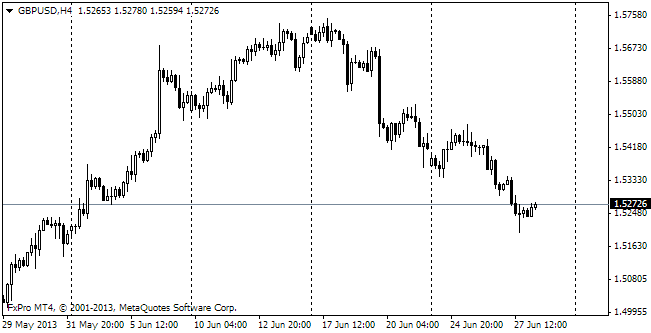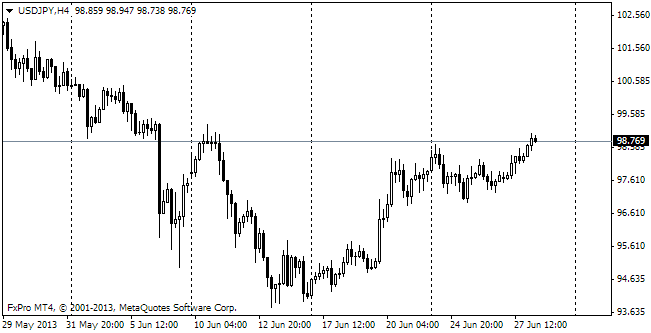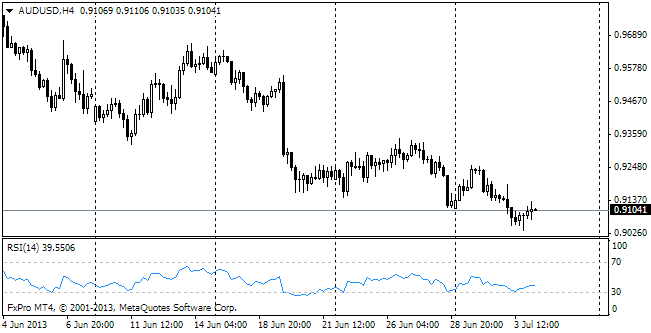EUR/usd
Yesterday the single currency would have had a hard time, if the German PMI hadn't come to the rescue. The preliminary French PMI, published half an hour before, intensified pressure on the euro due to the decrease in the Manufacturing and Services PMIs. The former fell from 48.8 right down to 47.3 against the expected 48.6 and the latter – from 48.4 to 48.1 against the expected 48.2. The French economy keeps slowing down. The Composite PMI in the meantime dipped down to 48.0, which hasn't been seen since last February. The pair managed to stay above 1.26 (the low was reported at 1.2613), probably, only thanks to strong German PMIs. The Manufacturing PMI of this country suddenly became positive, making now 51.8 against the expected 49.6 and the preceding rate of 49.9. It was enough to make the Composite PMI positive as well, despite the services sector didn't grow as much as expected. The Services PMI slowed down from 55.7 to 54.8, against the supposed 55.00. Yet, the best bulls could do was to raise the pair to 1.2670. Further it was again returned within the range, observed before the news release (1.2630-1.2650). Statistics on weekly unemployment claims proved to be quite contradictory. The number of unemployment claims grew significantly to 283K, while players had expected them at 266K – the multi-year low of the last week (revised up from 264k). However, the number of continuing claims continued their downtrend, totaling 2.351bln against 2.389 a week ago. The four-week averages remain in a moderate downtrend, reflecting the strong unemployment statistics. Today the asset flows of the end of the week can support growth of the euro against the dollar, however it will hardly be enough to arouse doubts about a new tide of decline. Note that at the weekend stress-test results of the EU banks are published. There can be some unpleasant surprises, which are able to cause selling of the euro at the beginning of the next week.
GBP/USD
Yesterday bears wanted to finally suppress bulls' resistance, but failed. gbpusd received a blow on the release of retail sales statistics, but soon got up its courage. The index of total sales fell by 0.3%, more than expected (0.1%). Against the same month a year ago the index grew by 2.7% against the impressive 3.7% a month ago. Even the BBA Mortgage Approvals didn't help. The index made 39.3K in September, which is the lowest rate for more than a year. Buyers again don't hurry to purchase houses, whose prices are growing much faster than earnings.

USD/JPY
Yesterday's favourable corporate reports helped usdjpy to speed up. The pair went beyond 108.00, just as had been supposed, accelerating above 107.40. Now the pair is consolidating since there are no important growth drivers and significant levels of support/resistance are far away. To close the week positively the pair needs to remain above 107.20. If it fails, next week's performance can be moderate.

AUD/USD
The Australian dollar keeps trading flat. The pair is being purchased on dips below 0.8720, but there are no significant reasons for growth. Market observers put off the forecasted date of the beginning of the RBA's policy tightening. It is largely due to 40% decline of prices of iron ore, which makes a significant share of the country's exports.
